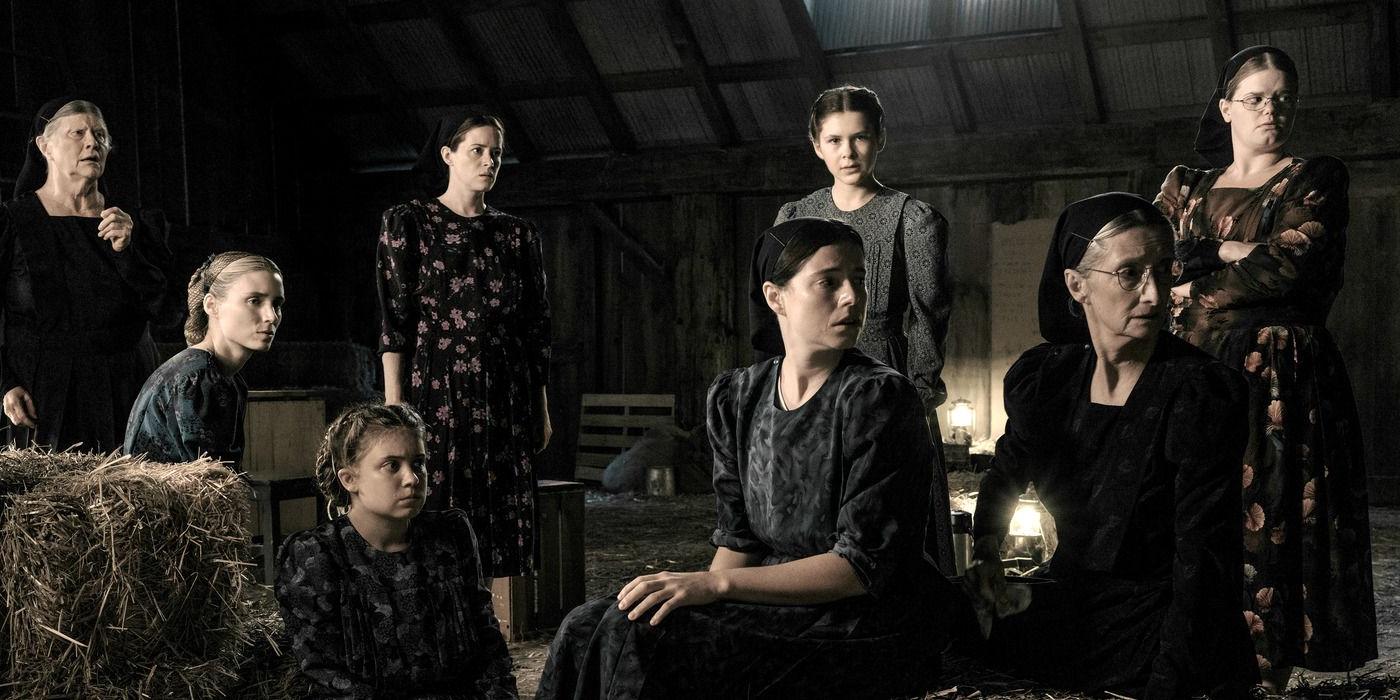Moviegoers have been wondering for a long time when actress-turned-filmmaker Sarah Polley would return to the director’s chair, following the promise of her exceptional directorial debut, Away From Her, the mature complexity of her sophomore feature, Take This Waltz, and the raw power of her third feature, the intimate and personal documentary, Stories We Tell. In the cinema, her work has not been seen for almost a decade. Although she has been busy with projects like Alias Grace on Netflix and Hey Lady! on a Canadian website, Polley’s absence from the cinema world has been noted, and her fourth feature is overdue. We can all breathe a sigh of relief now that Polley will soon be back.
Women Talking, an adaptation of Miriam Toews’ 2018 novel of the same name, is her comeback project, and it’s poised to be a major awards candidate. We should have a better notion of what to anticipate from it after its premiere at the Telluride Film Festival. The official teaser poster, however, was recently released. This ensemble film has an A-list cast that includes Rooney Mara, Jessie Buckley, Claire Foy, Judith Ivey, Ben Whishaw, and Frances McDormand, but the poster doesn’t draw attention to any of the stars. Instead, it depicts two ladies holding hands as they prepare to confront the horrors of what promises to be a disturbing movie.
While the film will examine the tragic fallout of violence and suffering, Polley said in a statement that she intends it to be an emotionally resonant look at what it means to push oneself forward in the hopes of creating a brighter future for oneself and one’s loved ones.
Many of the women in “Women Talking” have fundamental disagreements with one another, but they come together to discuss how they might create a better world for themselves and their children. The circumstances leading up to the film’s events are violent, yet the film itself is not.
The women’s experiences of violence are never depicted. Only brief views of the aftermath are presented to us. Instead, we see a group of women rally together to figure out how to respond as a group in a very short amount of time. Polley wanted to pay tribute to the wisdom and strength of Toews’ work, and the summary of Women Talking suggests that it has the potential to be one of the most pertinent and compelling films of our times. The book by Miriam Toews had a profound effect on me, making me rethink and consider aspects of my life that I had never before given any consideration. An investigation of issues of compassion, belief, power, trauma, recovery, responsibility, belonging, and agency. It made me feel strangely upbeat, too.
In my head, this movie belonged to a fairy tale. While the film’s plot takes place within a tight-knit religious community, I believed that the picture required a grander scale to do justice to the film’s themes and concerns, which are both enormous and applicable outside that group’s borders. This meant that the film’s visual language needed room to develop and flourish. I aimed to infuse each shot with the boundless hope and opportunity of a discussion about fixing the world. Women Talking, which McDormand produced and Brad Pitt executive produced, boasts an impressive array of A-list talent both in front of and behind the camera, and if it does well at this year’s film festivals, it might find itself in the front ranks of the Oscar race.
Given the popularity of Polley’s prior films, we may anticipate another profound and evocative effort from this outstanding genius who has been absent from the big screen for far too long. On December 2nd, the film Women Talking will debut in limited cinemas before opening to a wider audience on Christmas Day.

